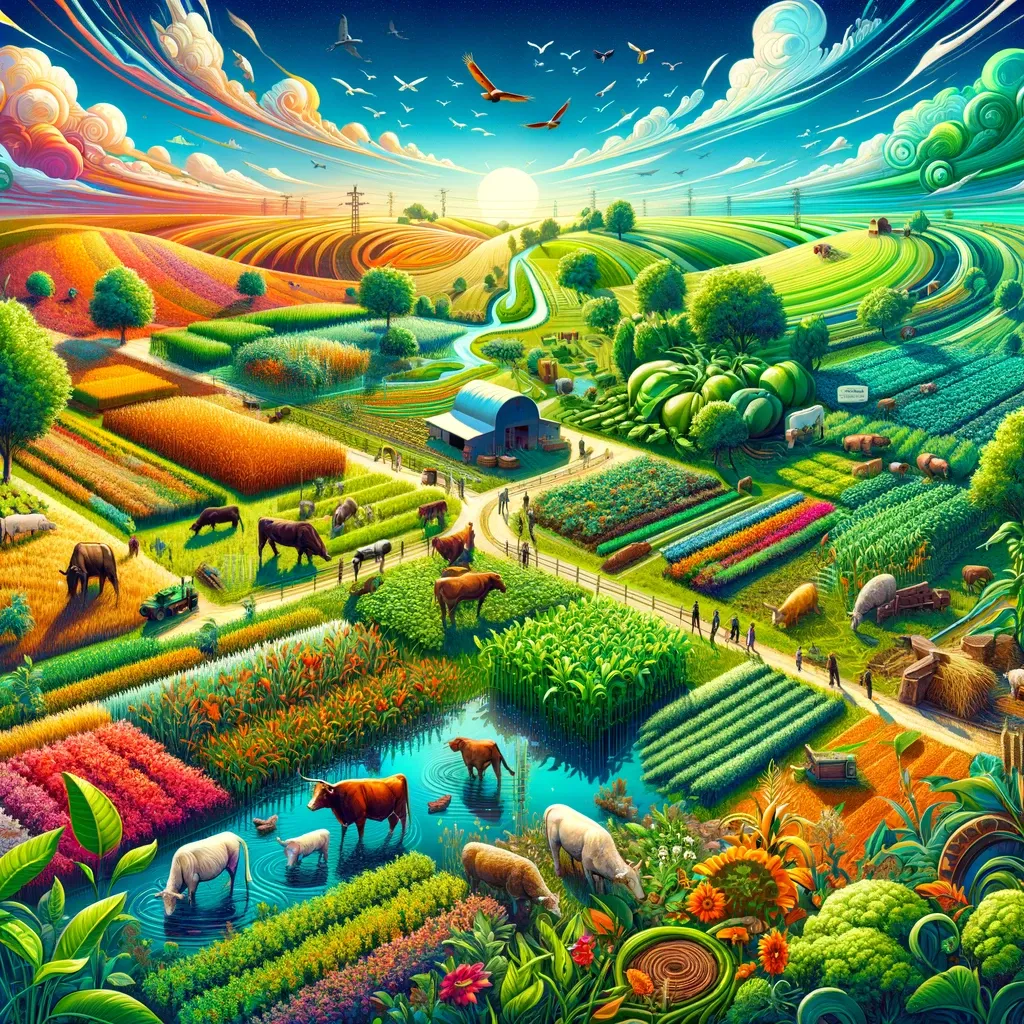🌱 Regenerative Agriculture: A Green Revolution or Just a Greenwash? 🌱

Welcome to the latest scoop from The Next Weave, where we unravel the tangled threads of today's hottest topics. Today's weave? Regenerative Agriculture – a term that's growing faster in the digital world than wildflowers in spring! With a whopping 1,011% increase in search growth over five years, this isn't just a trend; it's an agricultural uprising. But is it the eco-savior we've been waiting for, or just another green-dressed wolf? Let's dig in! 🌾
🌍 The Roots of Regenerative Agriculture
First off, what even is regenerative agriculture? Coined in the 1970s, it's not your grandma's farming. This method aims to do more than just avoid harming the environment; it's about improving it. Think of it as agriculture with a superhero cape, swooping in to save soils, water, and biodiversity from the clutches of industrial farming. By integrating livestock, leaving soil undisturbed, and using less synthetic chemicals, it's essentially farming that gives back more than it takes. A pretty neat concept, right? 🦸♂️🌿
🌤️ The Sunny Side: Pros of Regenerative Agriculture
So, why is everyone talking about it? For starters, it's got some serious eco-creds. By improving soil health, regenerative farming can lock away carbon dioxide - a win for tackling climate change. Plus, it's not just about being less bad; it's about being positively good for the planet. Think of it as the difference between not littering and actively cleaning up a beach. 💚
⚠️ The Thorny Side: Challenges and Criticisms
But hold your horses (or tractors)! It's not all rosy in the regenerative garden. Critics argue that while it's a step up from conventional methods, it doesn't quite go far enough. The main beef? It doesn't adequately address the bigger picture issues like social justice and food distribution. In essence, while it's fixing some problems, it might be ignoring others. And there's more; some big corporations are jumping on the regenerative bandwagon, potentially using it to greenwash their images rather than making substantial changes. A case of old wine in a new bottle, perhaps? 🍷🌿
🌏 The Global Perspective: Not a One-Size-Fits-All Solution
Here's where it gets even trickier. Regenerative agriculture, while popular in the Global North, doesn't always translate well globally. It sometimes fails to acknowledge indigenous practices and overlooks the needs of farmers in the Global South. And let's not forget about agroecology - another sustainable farming method that's getting sidelined in the regenerative rush. This approach, endorsed by the United Nations, combines agriculture with ecology, emphasizing social justice and supporting small-scale farmers. It's a bit like regenerative agriculture's lesser-known but equally cool cousin. 🌍✊
🌱 The Growing Debate: What's Next for Regenerative Agriculture?
So, where do we go from here? It's clear that regenerative agriculture has its heart in the right place, but it's not the magic bullet for all our agricultural woes. What's needed is a broader approach that includes social and political change, not just environmental. The good news? There's a growing call within the regenerative movement to focus more on equity, justice, and diversity. Maybe, just maybe, it could lead to a real transformation in how we grow our food. 🌟
📚 Sources:
- Phys.org's comprehensive overview of the pros and cons of regenerative agriculture: https://phys.org/news/2023-05-regenerative-agriculture-ragebut-food.html
So, what do you think? Is regenerative agriculture the dawn of a new agricultural era, or just a trendy term with more style than substance? Drop your thoughts in the comments, and let's keep this conversation growing! 🌱💬



Comments ()